- Home
- Tim LaHaye
The Rising: Antichrist is Born / Before They Were Left Behind Page 4
The Rising: Antichrist is Born / Before They Were Left Behind Read online
Page 4
“That’s what I mean.”
“Well, um, okay.” Ray bowed his head and closed his eyes, folding his hands over his plate. “God is great; God is good. Now we thank Him for our food. Amen.”
The little sisters laughed aloud, and Bobby couldn’t stop a guffaw even with his palm pressed to his mouth. “That’s your prayer?” he said.
“Robert!” his mother said.
“Sorry.”
“Yeah, that’s my prayer. What about it?”
“That’s how you pray for a meal?”
“Yeah, so?”
Mr. Stark cleared his throat. “How about your father, Raymond?”
“It’s Rayford.”
“All right. Is that how your father prays over a meal? I mean, I’m just curious. It’s a child’s prayer. Uh, you’re a child, but you’re becoming a man.”
Ray wanted this conversation over. What in the world was it with these people? “Do you want me to pray like my father prays? I can.”
Mrs. Stark set down a bowl she had apparently meant to pass. “Yes, that would be nice.” Everyone closed their eyes again.
“For what we are about to receive,” Ray said, “may we be truly thankful. Amen.”
“Amen!” the girls chorused.
Ray got the impression that Bobby and his parents were again amused but had decided not to humiliate him further. At breakfast he was not going to be talked into praying again; that was for sure. For one thing, those were the only two prayers he knew, other than “Now I lay me down to sleep; I pray thee, Lord, my soul to keep. If I should die before I wake, I pray thee, Lord, my soul to take.” He could only imagine their reaction to that.
Bobby seemed to quietly study him that evening, and Ray was hoping they wouldn’t start talking about anything serious. No such luck. While they were setting up the video-game controls, Bobby said, “That’s how you pray at your house, eh?”
Ray shrugged. “We don’t pray a lot. Just for meals and at bedtime.”
“Really?”
“Yeah.”
“And it’s those made-up, rhyming prayers?”
Ray sighed. “What’re we supposed to do—pray like the preacher?”
“What church do you go to, anyway?” Bobby said.
“Central.”
“The big one on the corner downtown? Do they believe in Jesus?”
“’Course they do. What do you think?”
“I don’t know. Some churches don’t.”
“Those would be synagogues,” Ray said.
“How about you, Ray? You believe in Jesus?”
“I told you! I go to Central every Sunday.”
“So you’ve got Jesus in your heart?”
Ray just wanted to play. What was this? “In my heart? What’s that mean?”
“How long you been going to this church?”
Ray pushed the controls aside and sat back on the couch. “My dad grew up in Central Church. He’s real religious.”
“And your mom?”
“She grew up in Michigan, but yeah, she’s religious too.”
“They’re Christians?”
Ray shook his head. Bobby didn’t seem this dense at school. “ ’Course they are. Did you think we were Jewish?”
“Well, it’s not like you’re either Jewish or Christian.”
“We’re sure nothing else!”
“You’ve got to have Jesus in your heart, Ray. That’s the deal.”
Ray picked up the controller, hoping Bobby would drop the subject.
“Do you, Ray?”
“Do I what?”
“Do you have Jesus in your heart?”
“Look, Bobby, I’ve been going to Central Church since I was born, and I never heard anything about getting Jesus in your heart. But there’s pictures of Him everywhere, even in the windows, and He’s what the pastor preaches about. Just because we don’t call it whatever your church calls it doesn’t mean we’re not religious too.”
“It’s not about religion,” Bobby said, sounding to Ray like something a Sunday school teacher might say. “It’s about being a true Christian.”
“I am!”
“Not unless you’ve got Jesus in your heart.”
Now Ray was mad. “And what if I don’t?”
“Then you’re going to hell.”
“What!?”
“That’s what the Bible says. You have to tell God you know you’re a sinner and—”
“I’m no sinner.”
“Your church doesn’t teach that everybody’s a sinner?”
“No!”
“It’s right in the Bible. It says everybody has sinned.”
“I’ll bet my mom hasn’t.”
“Bet she has.”
“Bobby, you don’t know what you’re talking about. I don’t know everything about what our church teaches, but I think we believe everybody’s good at heart. We try to do good things all the time, do what God wants us to do.”
Bobby sat there shaking his head.
Ray wanted to pop him. Look down at me, will ya? And you’re not even as smart as I am. “What?” Ray said.
“Your church teaches that people are good at heart?”
“I don’t know, Bobby. Come on; let’s do something.”
“I just don’t want you to go to hell, that’s all.”
“You don’t have to worry about that.”
“So you’re not a sinner? You don’t sin? I’ve heard you swear.”
Ray stretched out on the couch and clasped his hands behind his head. It was going to be a long night. “Okay, I swear, all right? God’s going to send me to hell for that? There’s gonna be a lot of people there with me.”
“You get mad.”
“Everybody does. Usually I get mad at myself if I mess up in a game. Right now I’m mad at you because you’re borin’ me to death with all this.” Truth was, he was more insulted than bored.
“You were born a sinner.”
Ray sat up, glaring at Bobby. “How would you know that?”
“It’s right in the Bible. We all were.”
“There you go with the Bible again. What, are you gonna be a preacher when you grow up? a missionary? what?”
“Whatever God wants me to be.”
“And when’s He going to tell you?”
“Never know. I gotta just keep listening.”
“You know how wacky you sound?”
“Well, listen to you, Ray. You don’t even think you’re a sinner.”
“There are a lot worse people in this world than me. But I don’t suppose you’re one of ’em.”
“I’m just like everybody else,” Bobby said. “Born in sin. Need to be forgiven. I’m mean to my sisters, mouth off to my parents . . .”
“So you’re on your way to hell too?”
“I was. Till I got Jesus in my heart.”
“And since then you don’t sin?”
“Of course I do. But I’ve been saved by grace. Jesus died—”
“Can we not talk about this anymore, Bobby? Really. You must go to one weird church.”
“No, it’s great. You should come sometime. Think your parents would let you? Maybe day after tomorrow?”
Not in a million years.
THREE
MUCH AS MARILENA tried to remind herself she was a mature, modern adult, she couldn’t brush aside her disappointment and suspicion when she trudged from the bus to the apartment building and could see from the street that their flat was dark. And thus empty. It was Sorin’s custom to read until midnight. And it wasn’t even ten yet.
So he had again taken advantage of her absence to tend to his own needs. What did I expect? It’s all right; really, it’s all right. The alternative is worse.
Marilena didn’t even try to talk herself into using the stairs rather than the elevator. Climbing would be good for her, she knew, but her mind was so full it seemed to weigh on her body. When finally she entered the apartment, she shut the door without locking it, knowing Sorin had
to be home soon. Without even turning on the light she dropped heavily into her favorite overstuffed chair and inhaled the stale, sickly sweet aroma of her husband’s cherry-flavored pipe tobacco.
Marilena missed him somehow. It was true. It wasn’t love. It was familiarity. She wanted him home. She would not obsess about where he might be, what he might be doing, or with whom. She would just sit in the dark, sweating from her walk from the bus, reminiscing about the first time she laid eyes on Viviana Ivinisova.
She had initially been offended when Sorin had arrived home from the university late that Tuesday afternoon. With her last class over by noon, she had rushed home to fix his favorite meal, grinding and grilling pork and beef and rolling it into spherical mititeli. Marilena knew she didn’t have to remind him—again—about his commitment that night, but he had to notice she was being overly helpful. When he arrived home, she took his book-laden leather bag so he could wrestle his bicycle into the flat.
“Do I have time to change before eating?” he said. “I have a lot of work tonight.”
Change? He never changed. And now, the evening he had promised to go with her, he was changing? And work? He always had work. But Sorin was one who never had to cram or rush. His routine was to read the paper, have a little dinner, study for several hours before watching the international news, then read until going to bed at midnight. His schedule could bear a couple of hours for her that evening.
Marilena nodded. “You have time,” she said flatly. She couldn’t make him go. If she had to go alone, she would. But it wasn’t like him to renege. It took all the fortitude she could muster to keep from saying, “You haven’t forgotten, have you?” But forgetting was not part of Sorin’s makeup either. He was not the clichéd absentminded professor.
That left one possibility Marilena didn’t want to entertain. Sorin was toying with her. His passive-aggressive streak infuriated her, yet he was so clever about it she dared not challenge him on it. He always left room to turn the blame on her.
He stopped by his massive bookshelves for a thick reference work—in case her small talk bored him, she presumed—and padded to the table in the flannel robe and slippers she had always wished he would wear when he worked at night. Yet if she had raised his having to dress again to fulfill his promise that evening, he would have said, “Of course. Why would you think I had forgotten?”
And it would be on her. She would have been made to feel small, paranoid, a nagger. But that night she was on to him. She saw bemusement in his eyes as he sat. Normally better mannered, he immediately reached for the platter of meatballs and ladled himself a large portion. He inhaled noisily through his nose. “Your specialty,” he said. “You would have made someone a good housewife.”
It was a joke she didn’t find humorous. “Why would I want to be a housewife when I can be your servant?”
He laughed. “Touché.”
Sorin ate with such relish that her pique began to fade. It returned, however, when he finished, expressed a cursory thanks, wiped his mouth and hands, and abruptly retired to his desk. Usually one cooked and the other tidied, but clearly all the chores were hers that night. She managed them noisily, hoping to interrupt his concentration, knowing he had provoked her.
Her own desk and chair were in full view of his, so when it was nearly time to leave for the bus, she sat in plain sight, coat on, bag in her lap. Sorin read and made notes as if she were not there. Marilena wanted to tap her foot or drum her fingers, to scream, but she would not. She resolved to march out as soon as the clock reached a quarter past six, slam the door, and not speak to Sorin for weeks.
Her respiration increased with a couple of minutes to go. Her jaw was set. Abruptly Sorin rose and stepped into the bedroom. Just as she was about to leave, he reappeared fully dressed and carrying a book. “We’d better get going,” he said. “You don’t want to be late.” It was not lost on her that she was the one who wouldn’t want to be late, but Marilena was so relieved he was accompanying her that she set her exasperation aside.
“So you want to be a pilot, huh, Ray?” Mr. Stark said on the way to the soccer game the next morning.
“Yes, sir. If I can’t be a pro athlete.”
“Well, you know the likelihood of your becoming a pilot is a lot greater than—”
“I know.”
“Your dad ever take you to O’Hare to watch the jets or take the tour?”
“Sure. I love it.”
“Attaboy. You can serve the Lord in a profession like that. You don’t have to be in full-time ministry like Bobby’s probably going to be.”
Serve the Lord? Ray couldn’t make it compute. Surely God didn’t need to be flown anywhere. And what in the world was full-time ministry? That could mean only preaching or being a missionary, and while Mr. Stark had said Ray didn’t have to do that, the implication was clear.
One of Bobby’s little sisters piped up: “We’re gonna be cardiovascular surgeons.”
“You are not,” Bobby said.
“Are too.”
“You don’t even know what that means,” he said. “You just like how it sounds.”
“I do too know what it means. Brain surgery.”
“Is not.”
“Is too!”
Ray couldn’t wait to get to the game and away from these people.
Marilena wouldn’t have accused Sorin aloud, but she was convinced he was giddy about this folly of hers. On the bus she noticed the book he had brought was a German translation of The Ramifications of the Humanist Manifesto.
She had no idea what they were to encounter at the library, but the odds were that humanism would fly in the face of it. It would be just like Sorin to make plain to everyone, especially the leader, what he was reading. Whether he would debate or argue depended upon his mood. Marilena feared he was itching for a fight. She was merely curious, but mostly, she reminded herself, she was looking for diversion from the compulsion to have a child that now permeated her being.
Marilena had never considered herself a controlling person, but as soon as she and Sorin found their way to the anteroom at the library, she wished she were his mother. She allowed someone to take her coat. He did not, leaving it on despite the heat in the room, as if ready to escape at a moment’s notice. She knew he had to be as disconcerted as she at the overdone friendliness of everyone’s welcomes—smiles and handshakes all around. So much for just drifting in, sitting in the back, and seeing what this was all about.
And sure enough, Sorin made no attempt to hide his book.
Marilena couldn’t be sure of the significance, but about thirty seconds before seven o’clock, everyone seemed to instinctively find their seats and fall silent. She had tried to guess which of the people might be the leader, but it soon became clear that he or she had not been part of the welcoming party. As the second hand hit the top of the clock, in strode a tiny, nattily dressed woman who looked as if she had been assembled from a kit. A kit from perhaps fifty years previous.
Laden with a stack of folders and a briefcase, she appeared to be in her midthirties, but she dressed and carried herself as if she were older. She wore severe black oxford shoes with low heels, sheer stockings—something Marilena had not seen since childhood—a pale blue suit with a skirt that extended to midcalf, a white blouse with a frilly lace collar, a plain but expensive-looking brooch, and a sprayed-in-place, salt-and-pepper hairdo that actually looked as if it had been teased. Marilena had seen that only in history books.
The woman introduced herself as Viviana Ivinisova in a pleasant, quiet voice and proved precise and articulate, every syllable crisp and clear. “Our numbers seem to grow every week,” she said, smiling. “Welcome, welcome, especially to our newcomers.”
With that she resolutely looked directly into the eyes of at least six people, as if to prove she was aware of each she had not seen before. Marilena returned her smile, and when Viviana turned her gaze to Sorin, Marilena did too. She was mortified to see that he had pressed a hand ove
r his mouth and appeared to be stifling a huge laugh.
Viviana returned to the first newcomer. “Please tell us your name and why you’re here.”
Most said they had heard wonderful things about this class, and several expressed variations on the theme that they were most curious and open-minded about the idea of “finding something beyond myself.”
When it was Marilena’s turn, she said, “I’m just curious and love to learn.”
“Excellent,” Viviana said. “And you, sir?”
Sorin removed his hand from his mouth, smiling broadly. “Sorin Carpathia. I was dragged here by my wife, who is curious and loves to learn.”
That brought laughter, much of it louder—Marilena thought—than the comment deserved. “And you, Sorin,” Viviana said, “are you also curious and a lover of learning?”
“To be honest,” he said, “I’m more of a know-it-all who loves to teach.”
That seemed to genuinely tickle Ms. Ivinisova. “Do you teach?”
Sorin said, “I am chairman of the Classical Literature department at the University of Romania.”
“Excellent. And may I assume you are open-minded?”
“I like to think I am,” he said. “My suspicion is that tonight will be a true test. Your advertisement promised I would be astonished.”
The game had been a better test than usual for Ray and his team, but again he had been the leading scorer and they had won. And again his father’s bellowing had embarrassed Ray.
In the car Ray said, “We’re Christians, right?”
“Of course,” his mother said. “Whatever would make you ask that?”
He told her what Bobby had said.
“Fundamentalists,” his father concluded.
“Funda-what-alists?”
“Holy Rollers. Wouldn’t surprise me if they were snake handlers.”
“What in the world are you talking about, Dad?”
“Some people, some churches, just take everything a little too far. They take every word of the Bible literally, believe Jesus has to crawl inside you, that you have to bathe in His blood. If the Bible says you can handle poisonous snakes if you trust the Lord, they do it just to prove the point.”

 Glorious Appearing: The End of Days
Glorious Appearing: The End of Days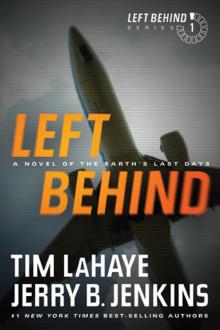 Left Behind: A Novel of the Earth's Last Days
Left Behind: A Novel of the Earth's Last Days Kingdom Come: The Final Victory
Kingdom Come: The Final Victory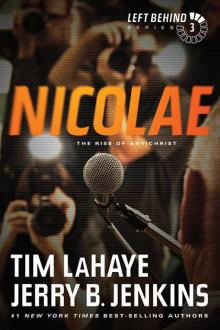 Nicolae: The Rise of Antichrist
Nicolae: The Rise of Antichrist Desecration: Antichrist Takes the Throne
Desecration: Antichrist Takes the Throne Mark's Story: The Gospel According to Peter
Mark's Story: The Gospel According to Peter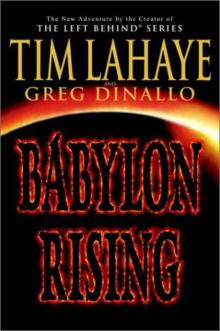 Babylon Rising
Babylon Rising Thunder of Heaven: A Joshua Jordan Novel
Thunder of Heaven: A Joshua Jordan Novel The Edge of Darkness
The Edge of Darkness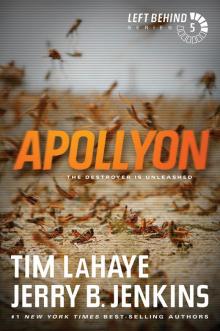 Apollyon: The Destroyer Is Unleashed
Apollyon: The Destroyer Is Unleashed Armageddon: The Cosmic Battle of the Ages
Armageddon: The Cosmic Battle of the Ages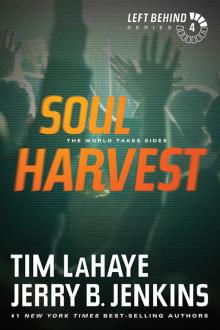 Soul Harvest: The World Takes Sides
Soul Harvest: The World Takes Sides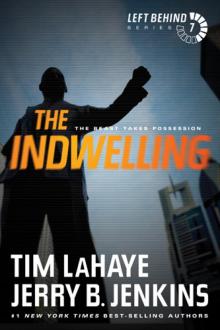 The Indwelling: The Beast Takes Possession
The Indwelling: The Beast Takes Possession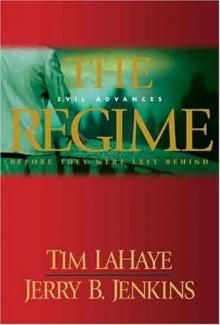 The Regime: Evil Advances
The Regime: Evil Advances The Rapture: In the Twinkling of an Eye / Countdown to the Earth's Last Days
The Rapture: In the Twinkling of an Eye / Countdown to the Earth's Last Days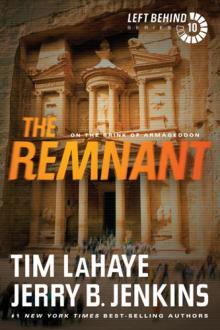 The Remnant: On the Brink of Armageddon
The Remnant: On the Brink of Armageddon John's Story: The Last Eyewitness
John's Story: The Last Eyewitness The Europa Conspiracy
The Europa Conspiracy Mark of Evil
Mark of Evil Brink of Chaos
Brink of Chaos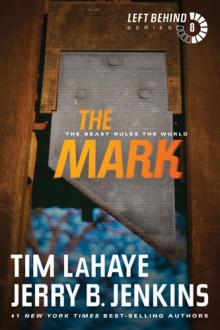 The Mark: The Beast Rules the World
The Mark: The Beast Rules the World 04 The Edge of Darkness
04 The Edge of Darkness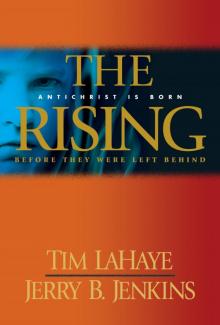 The Rising: Antichrist is Born / Before They Were Left Behind
The Rising: Antichrist is Born / Before They Were Left Behind Babylon Rising: The Edge of Darkness
Babylon Rising: The Edge of Darkness 03 The Europa Conspiracy
03 The Europa Conspiracy Desecration
Desecration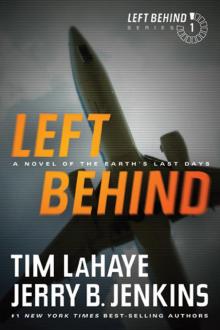 Left Behind
Left Behind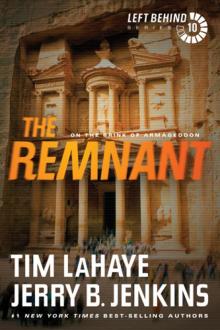 The Remnant
The Remnant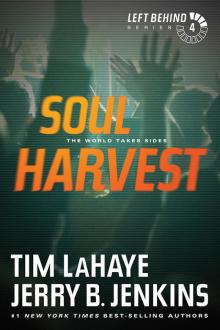 Soul Harvest
Soul Harvest Left Behind Book 13: Kingdom Come The Final Victory
Left Behind Book 13: Kingdom Come The Final Victory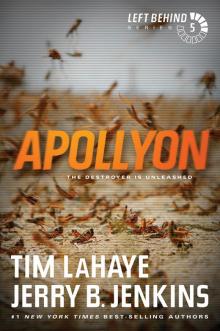 Apollyon
Apollyon 02 Thunder of Heaven: A Joshua Jordan Novel
02 Thunder of Heaven: A Joshua Jordan Novel Glorious Appearing
Glorious Appearing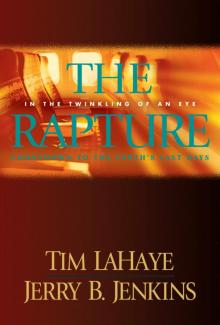 The Rapture: Evil Advances / Before They Were Left Behind
The Rapture: Evil Advances / Before They Were Left Behind Edge of Apocalypse
Edge of Apocalypse Tribulation Force
Tribulation Force The Left Behind Collection: All 12 Books
The Left Behind Collection: All 12 Books Black Friday
Black Friday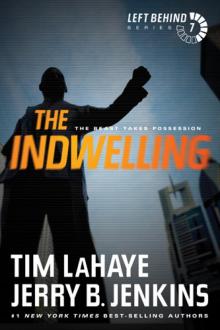 The Indwelling
The Indwelling The Left Behind Collection
The Left Behind Collection